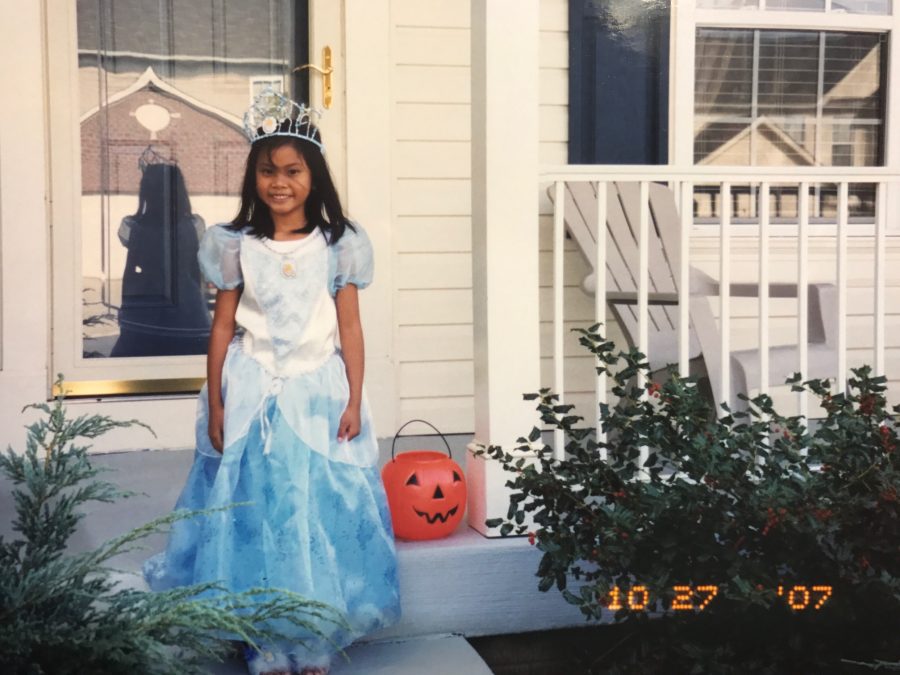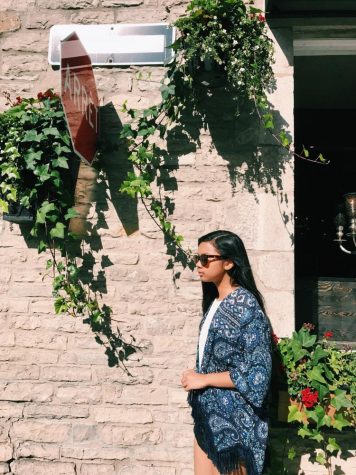Missing Magic: A Thinkpiece on Diversity and Representation in Film
January 27, 2017
For most little girls, Disney princesses are a huge part of their lives, and I was no exception.
I have taken a total of five trips to Disney World, and the first three were spent waiting in seemingly endless lines in the scorching Florida heat just for autographs and photos with Ariel, Belle, and all their other royal counterparts. I still recall the time my family and I dined at Cinderella Castle when I was six years old, even paying around $100 to place a reservation one year in advance. (In fact, I’m almost certain the sparkly plastic blue wand I received as a souvenir from that evening is lying around the house somewhere, waiting to be rediscovered.) Quite simply, I adored the enchanting magic that characterized everything Disney was, especially when it came to the princess line.
And yet for that young girl, there was always a sense of detachment that that wasn’t me, that it couldn’t be me, because in general, girls who looked like me weren’t princesses. They weren’t heroes. They were nowhere.
Regardless, I spent several Halloweens dressing up as Disney princesses: I have been Mulan, Cinderella, Sleeping Beauty, and Snow White. The year I dressed up as Cinderella, I asked my mom if I shouldn’t have because I wasn’t blonde. Naturally, she insisted that it didn’t matter, and I could be anything I wanted to be.
But how is a child supposed to believe that she can be anything she wants to be when she can’t see herself in the shows and movies she’s seeing, watching, and enjoying? She’s told that she can’t be a hero — or worse, that she’s not even enough for a narrative.
Visibility is sparse, if not completely absent, when you’re of Filipino descent, born in New Zealand, and living in America. But even if it is not specific to me, increased diversity in media is the first step. When I first saw the previews for Moana, I realized this was something I had been waiting for ever since I was a young girl weighing whether I was close enough to Mulan. This, of course, extends to other recently released films that feature diverse casts and include people of color in important roles, such as Hidden Figures and Rogue One: A Star Wars Story.
When I say “missing magic,” I do not mean diversity is some magical element that is supposed to elevate a show or movie and should simply be utilized by film companies as a tool to yield larger audiences. No, diversity is a very real aspect of our lives; therefore, it is only necessary that what we see on screen mirrors what we see in real life. Representation is even more urgent for people of color because it is all the more real for us, and it is inexcusable that our existence is portrayed as minimal or limited. Thus, “missing magic” refers to the magic that is inspired within someone when they find characters they are able to personally identify with.
Representation matters because it affects the way we look at our own life stories and our potential, our ability to overcome our conflicts just like our favorite protagonists do. Because everyone’s existence deserves to be acknowledged and uplifted — that is why representation matters. And so present me is grateful for the strides being made in the movie industry, but so is the past me, the little girl who never should have had to question whether she could have been the hero of her own story. Having fleshed-out, complex, strong characters of color shows that heroes and protagonists are not one type of person and gives young people role models they can identify with. In effect, representation is so much more than representation; it provides visibility, validation, and hope.
Indeed, characters are for everyone. All our lives, we’re inspired by incredible characters regardless of their ethnicity, religion, sexual orientation, or other qualities. They’re characters — there’s a little bit of them in all of us. But those who are underrepresented must also specifically be given a voice, so they can be shown that yes, we see you, and we know that courage and selflessness and complexity and the many facets of being human are within you. And perhaps more importantly, so they can see that for themselves.
Hearing my sister rave about how much she loves Moana, a fierce and unapologetic heroine whom she can see herself in, gives me hope that something that had previously been so lacking for me finally has something to offer her. There is no denying that there is still a long road ahead despite the fact that progress has been made. But if we continue to move forward, to elevate the voices of those who are oftentimes unheard, then perhaps the words of Moana will ring true — and I can’t wait to see how far we’ll go.



Mrs. Reichelt • Jan 28, 2017 at 9:57 am
Thank you. Thank you. Powerful truth, beautifully written!